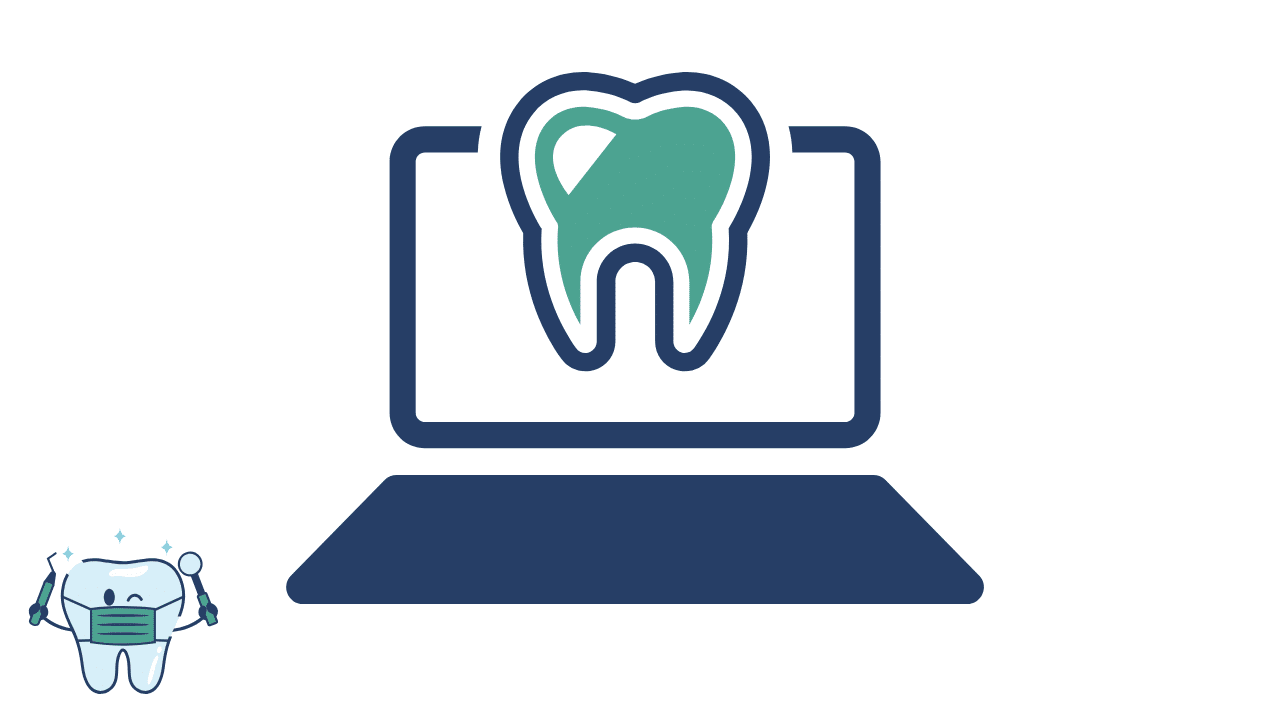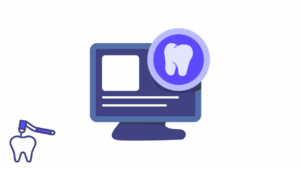Let’s be honest: no dentist decides to invest in a new website just for fun. You’re not looking for “something pretty to show off.” You want one thing above all — more new patients in your chairs. In this article, we’ll explore what every dentist needs to know about dental website templates.
Your website is no longer just an online brochure. In today’s competitive dental market, it’s the digital front door to your practice. For many people searching “dentist near me,” it will be the very first impression they get before deciding whether to call your office or click away.
So here’s the real question: when you build or rebuild your dental website, should you go custom, or should you use a proven template?
Many dentists assume “custom” means better. But the truth is, for the majority of practices, a templated dental website is not only enough — it’s often the smartest, fastest, and most cost-effective way to grow.
Why Templates Deserve More Credit
There’s a misconception in the dental world that templated websites are cheap, generic, or bad for SEO. Some dentists worry that if their website isn’t fully custom, patients won’t take them seriously.
But modern dental templates are nothing like the cookie-cutter designs of ten years ago. Today’s templates are built on powerful platforms like WordPress, already optimized for mobile, SEO, and patient conversion. Many are based on real-world data about what patients actually look for in a dentist online.
That means instead of starting from scratch and hoping a custom design “works,” a good template gives you a proven foundation to build on — saving you time, money, and stress. Explore what every dentist needs to know about dental website templates to attract patients.
The Big Advantages of Templated Dental Websites
1. Lower Cost, Higher ROI
Let’s face it: dental websites can get expensive. A fully custom site can easily run $6,000 to $10,000 or more. That’s money many dentists would be better off investing in marketing campaigns, SEO, or Google Ads — the things that directly drive patient growth.
By contrast, a templated dental website often costs a fraction of that. For most practices, you’re looking at $1,000 to $3,500 for a professional build. That means you can launch a strong, patient-friendly site and still have budget left over to promote it.
In other words, you’re not paying for endless design revisions or fancy animations. You’re investing in what really matters: a site that helps patients find you and book appointments.
2. Faster Launch = Faster Patients: Dental Website Templates
Time is money. If you’ve just opened your practice, moved locations, or need a serious website refresh, you can’t afford to wait six months for a custom build.
A templated dental website can often be launched in a few weeks. That means you can start ranking on Google, collecting reviews, and booking new patients right away using dentist templates.
3. Built on Proven Patient Behavior Dental Website Templates
Here’s the key: patients don’t care about “unique design.” They care about trust, convenience, and clarity.
Does this dentist look professional?
Can I see their services?
How do I book an appointment?
Templated websites are designed around these exact patient needs. They include tried-and-tested layouts: clear calls to action, mobile-friendly scheduling buttons, service explanations in plain English, and easy-to-find office information.
Instead of reinventing the wheel, you’re using a structure that’s already been proven to convert website visitors into actual patients.
4. Customizable Enough to Be Yours:
“Template” doesn’t mean you’re stuck with something generic. The best dental templates give you plenty of flexibility:
- Add your own colors and branding
- Use real photos of your team and office (instead of stock images)
- Highlight your specialties and unique services
- Feature patient reviews and testimonials using dentist templates.
When done right, a templated site feels just as personal and professional as a custom one — without the hefty price tag.
5. Comes With the Essentials Built-In
Most templates already include the features every dental website needs:
- Mobile-responsive design (critical, since most patients search on phones)
- Online booking forms
- SEO-friendly structure
- Service pages ready to be customized
- Secure hosting compatibility
- Easy content management
With a custom site, you often have to pay extra for these basics. With a template, they’re usually part of the package.
Common Concerns About Templates (and Why They’re Overblown: Dental Website
“Won’t my website look the same as other dentists’?”
Not if it’s done right. The key is personalization. When you add your real photos, team bios, Google reviews, and service copy, your site feels unique to your practice. Patients care about your story and your services more than whether another dentist across town used a similar layout.
“Are template sites bad for SEO?”
Absolutely not. Dental SEO has much more to do with your content, keywords, and ongoing optimization than with whether your site is custom or templated. In fact, many template frameworks are built with SEO best practices baked in using dentist templates.
“Will I outgrow a template?” Dental Website Templates
Maybe, eventually — if your practice expands to multiple locations, offers advanced membership plans, or needs complex integrations. But for 90% of general and family practices, a template offers more than enough flexibility for years of growth. And if you ever do outgrow it, you can upgrade later.
When Templates Make the Most Sense for a Dental Website
For most dentists, a templated dental website is the right choice if:
- You’re starting a new practice and need to get online quickly.
- You want to replace an outdated website without overspending.
- You’d rather invest more money into marketing and patient acquisition than into design.
- You value speed, simplicity, and proven results.
In fact, many of the top-performing dental practices online today are using well-optimized templates. What makes them stand out isn’t a flashy design — it’s strong content, clear calls to action, and ongoing marketing support.
When a Custom Site Might Be Worth It
To be fair, there are situations where a custom site makes sense. If you run a luxury cosmetic practice, have multiple locations, or want advanced features like patient portals, a custom design gives you more flexibility and differentiation.
But here’s the truth: most dentists don’t need that level of complexity. What they really need is a website that builds trust quickly, explains services clearly, and makes it easy to book an appointment.
Final Thoughts: Stop Designing for Dentists, Start Designing for Patients
One of the biggest mistakes dentists make is building a site based on what they like, instead of what patients need. Fancy animations and endless custom features might impress colleagues, but they don’t drive patient calls.
Patients care about three things:
- Can I trust this dentist?
- Do they offer the service I need?
- How do I book an appointment?
A well-built templated dental website answers those questions faster, more clearly, and more cost-effectively than most custom sites.If your real goal is to get more patients — not just to win a design award — then a templated dental website might just be the smartest investment your practice can make. And if you work with the right dental website design agency, you’ll get the benefits of a professional, patient-focused site without the high costs or long timelines of a custom build.








